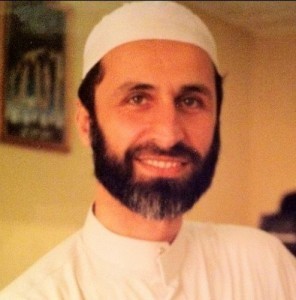Social Media Monitor 12-11-2012

A unified opposition?
Syrian opposition factions reached an agreement on the formation of a unified national coalition, after long meetings in Qatar’s Capital, Doha. The new coalition, formed on Sunday, includes the Syrian National Council, SNC, and representatives of both civil and armed opposition groups inside Syria. The leaders who pushed for the agreement hope that this plan will lead to an international recognition of the Syrian opposition, similar to the recognition received by the Libyan opposition.

Ahmed Mouaz al-Khatib was elected head of the new opposition coalition. Al-Khatib is a former imam of the Umayyad Mosque in Damascus and a Syrian opposition activist known for his moderate Islamic views. Before he left to Doha last week, Khatib discussed his views of the situation in Syria on his official website, in which he said he wishes to save Syrians from “a civilization immunodeficiency” caused by the regime: “I think the priorities[in helping] our people should be the following: 1- Uniting the people; 2- Stopping the bloodshed; 3- Overthrowing the fascist regime; 4-Promoting progress in our country.”
Khatib attended an Arab League meeting in Cairo on Monday, as a first step to obtain official recognition of the coalition from other countries.
Many of Khatib’s supporters expressed their satisfaction with his election on twitter (@KhatibMouaz).
A large number of opposition supporters expressed similar opinions, stressing his conciliatory stance.
Filmmaker Osama Mohamed wrote on Facebook: “His name is Khatib [preacher] but he doesn’t preach. He also smiles. He feels sorry whenever he sees a coffin with a [government] security member or soldier in it. He’s different from others because he’s humane.”
A tweet by Fadi Salem (@FadiSalem) stressed that the Muslim Brotherhood cannot use Khatib as a facade, as they did with the SNC’s ex-chairmen Burhan Ghalioun and Abdel Basset Sida.
The SNC’s new chairman: Give us weapons
In an attempt to overhaul the SNC, George Sabra was elected as a new chairman on Friday. There was also voting to fill other key positions. In his first media appearance after his election, George Sabra called on the international community to provide the Syrian opposition with weapons to enable it of toppling the regime.

While some activists expressed their resentment of Sabra’s call for more militarization, the Facebook page Kawakibi’s Descendants welcomed his election.
“It is known that George Sabra has joined the revolution since it started and he led protests in his hometown Qatana, after which he was arrested for two months in the regime’s prisons before he was released and joined the Syrian National Council in Paris.”
Aljazeera’s Syrian talk show presenter Faisal Kasim commented on the new changes in the opposition’s leadership on his twitter account (@kasimf): “George Sabra, Mouaz al-Khatib, Riad Seif and Suhair al-Atassi have been subjected to arrest and torture in Syria, i.e. they are not opposition leaders who spend their time in hotels; they have been [in the battlefield].”
Accusations against Sabra of being a member of the Muslim Brotherhood, which were made by regime supporters, were subject to cynical comments, especially that he is both Christian and communist.
“George Sabra is more of a Muslim Brotherhood supporter than the Muslim Brothers themselves… and Bin Ladin is secular more than the secularists,” Ragheb Nassif (@RaghebNassif) tweeted.
A visit by prime minister caused annoyance
A series of violent explosions shook Damascus last week. Six blasts took place in less than 24 hours, starting on Wednesday morning in the quarters of Al-Wurud, Al-Zahra, Rukn Al-Din, Barza, al-Mouadamiyya and al-Mazzeh 86. The explosions also reached security headquarters near the presidential palace and as an officers’ club.

The pro-opposition blog All4Syria reported that Alawite opposition activists criticized Prime Minister Wael al-Halki’s visit to al-Mazzeh 86 quarter while he did not visit other areas that were bombed or shelled. Al-Mazzeh 86 has a majority Alawite population and is seen as a stronghold of the regime’s supporters. These activists reportedly thought that the visit would promote the sectarian stereotype against Alawites, generally considered regime supporters by the opposition.
“I am not a puppet”
In an interview with Russia Today, President Bashar al-Assad rejected the idea of accepting a safe exist that would end the state of conflict that Syria is going through.
“I am not a puppet,” Assad said during the interview. “I was not made by the West to go to the West or to any other country,” he said. “I am Syrian, I was made in Syria, I have to live in Syria and die in Syria”
In response to this statement, activist Murad al-Hur posted a cartoon featuring the puppet Chucky from the famous horror movie Bride of Chucky, along with the following quote: “I am not a puppet, I was not made by the West and all the shabiha [regime thugs] are like me.]

